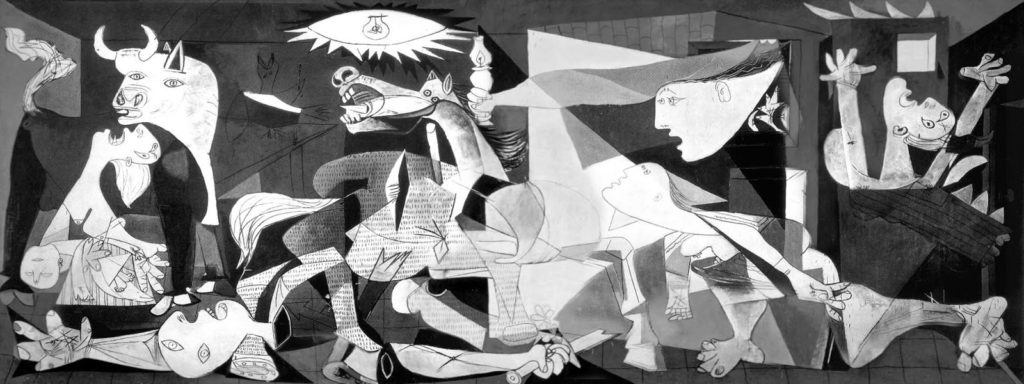
(May 24, 2022) There is perhaps no more famous painting depicting the art of war than Pablo Picasso’s Guernica. And perhaps the most famous piece of poetry in the canon of the art of war is In Flanders Field by John McCrae, a ghostly three-verse chorus of warning for the living to keep faith with the dead, as it memorializes the April 1915 battle in Belgium’s Ypres. Twenty five years later, W.H. Auden wrote his nine-verse, ninety-nine-line poem September 1, 1939 to mark the beginning of World War II. It paints the atmosphere of a world that hears a threatening rumble in the distance now, but perhaps not for long. It speaks of “Of a low dishonest decade,” and “The enlightenment driven away/The habit-forming pain/Mismanagement and grief/We must suffer them all again.” As we write this today, the new phase of the Russian war in Ukraine is bleeding into its fourth painful month, with shock waves being felt around the world. The carnage so similar to World War II, our brains expect black and white images.
Today, in an attempt to capture the potential for creativity in a tense and wounded world and to reflect on the art of war, we pair Picasso’s paintings with Auden’s poem.
In 1912 and 1913, Pablo Picasso lived in Barcelona and Paris. These were important years for his career — his collaborations with Georges Braques sparked the Cubist movement, carrying Picasso to a fame lasting the rest of his life. Collage was an important part of the Picasso’s early Cubist work, and he often used cuttings from newspapers in these paintings, which also feature bottles of wine, glasses, guitars, sheet music, and so on. These objects conjure up the anarchist/artist cafes where the young Picasso spent much of his time, reading newspapers, drinking, and discussing – and there was much to discuss, for the papers were full of the European unrest that would lead to World War 1– events like the First and Second Moroccan Crisis and the First Balkan conflict. More than half the newspaper cuttings Picasso used relate to this political unrest- these paintings, known mostly for their technical innovations, also express the inner world of an artist during a time of looming conflict and instability. Picasso’s later paintings, The Charnel House and Guernica, show that the fear and horror of war never left him. Both Auden and Picasso used cafés as environment to reflect on what what going on around them. Their observations make up part of the art of war, and are startlingly resonant this day in 2022.
Nota bene: With thanks to Patrician Leighten for her excellent scholarship on Picasso’s collage works, particularly her article Picasso’s Collages and the Threat of War. (Kathleen Adamson)
September 1, 1939, W.H. Auden
1.
I sit in one of the dives
On Fifty-second Street
Uncertain and afraid
As the clever hopes expire
Of a low dishonest decade:
Waves of anger and fear
Circulate over the bright
And darkened lands of the earth,
Obsessing our private lives;
The unmentionable odour of death
Offends the September night.
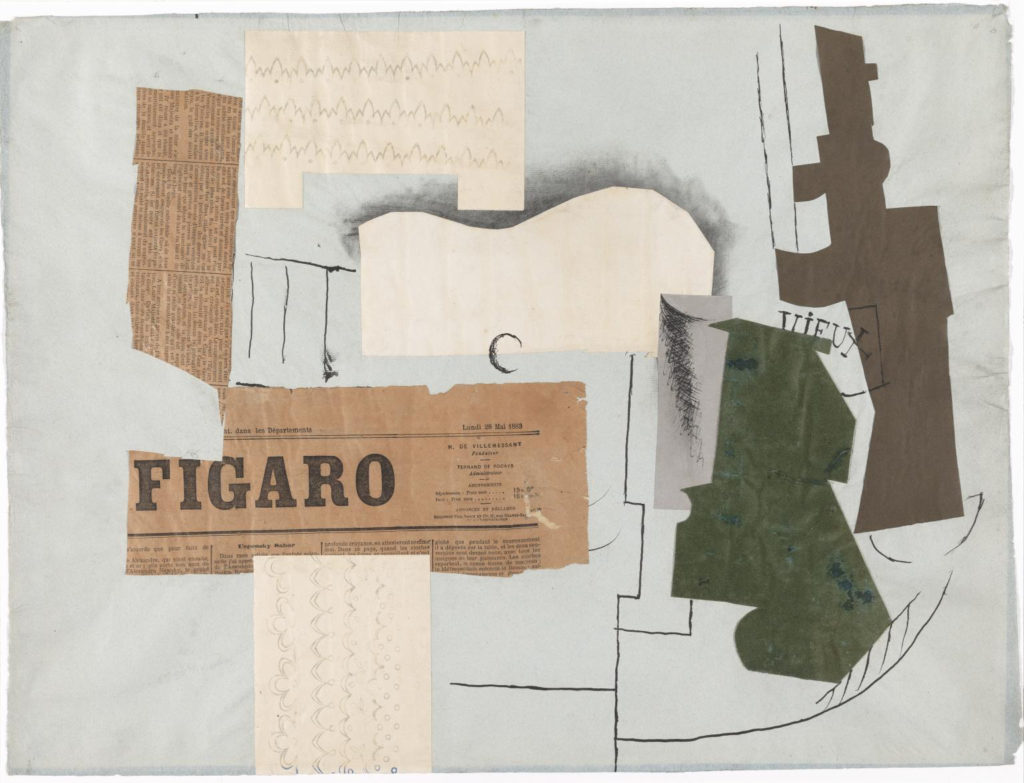
2.
Accurate scholarship can
Unearth the whole offence
From Luther until now
That has driven a culture mad,
Find what occurred at Linz,
What huge imago made
A psychopathic god:
I and the public know
What all schoolchildren learn,
Those to whom evil is done
Do evil in return.
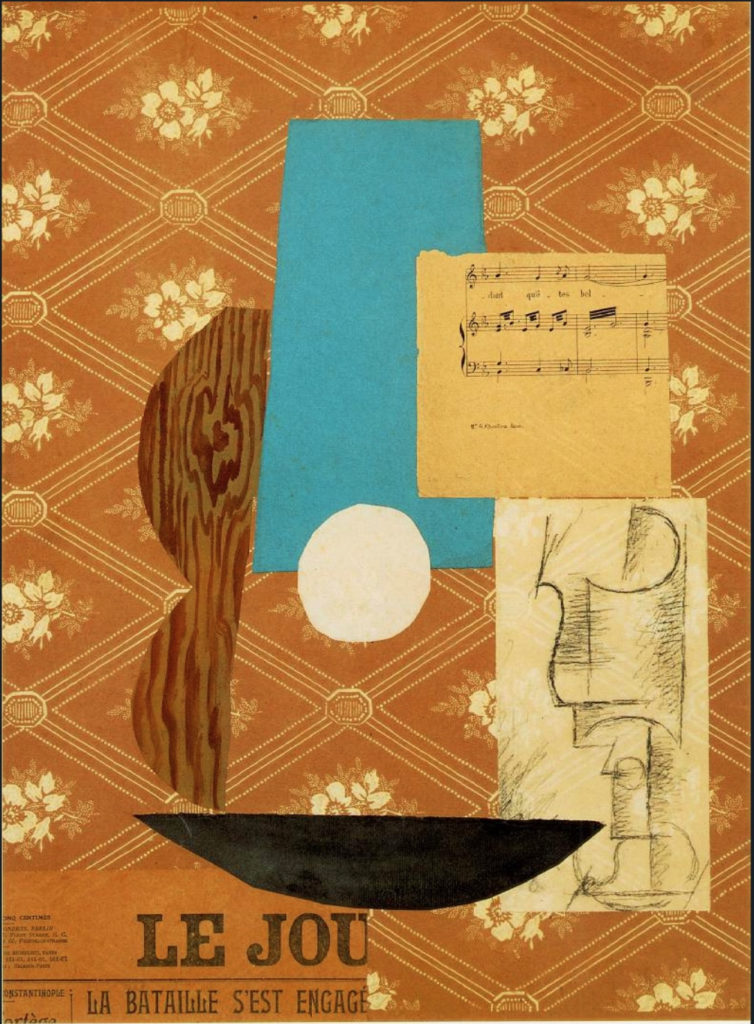
3.
Exiled Thucydides knew
All that a speech can say
About Democracy,
And what dictators do,
The elderly rubbish they talk
To an apathetic grave;
Analysed all in his book,
The enlightenment driven away,
The habit-forming pain,
Mismanagement and grief:
We must suffer them all again.

4.
Into this neutral air
Where blind skyscrapers use
Their full height to proclaim
The strength of Collective Man,
Each language pours its vain
Competitive excuse:
But who can live for long
In an euphoric dream;
Out of the mirror they stare,
Imperialism’s face
And the international wrong.
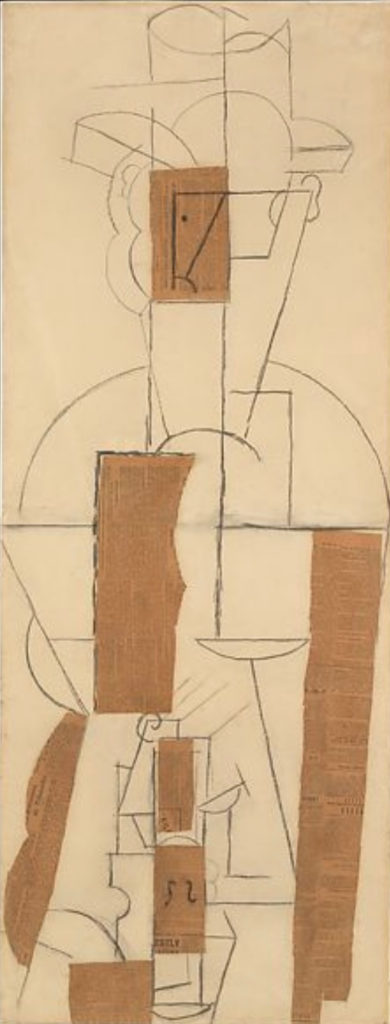
5.
Faces along the bar
Cling to their average day:
The lights must never go out,
The music must always play,
All the conventions conspire
To make this fort assume
The furniture of home;
Lest we should see where we are,
Lost in a haunted wood,
Children afraid of the night
Who have never been happy or good.
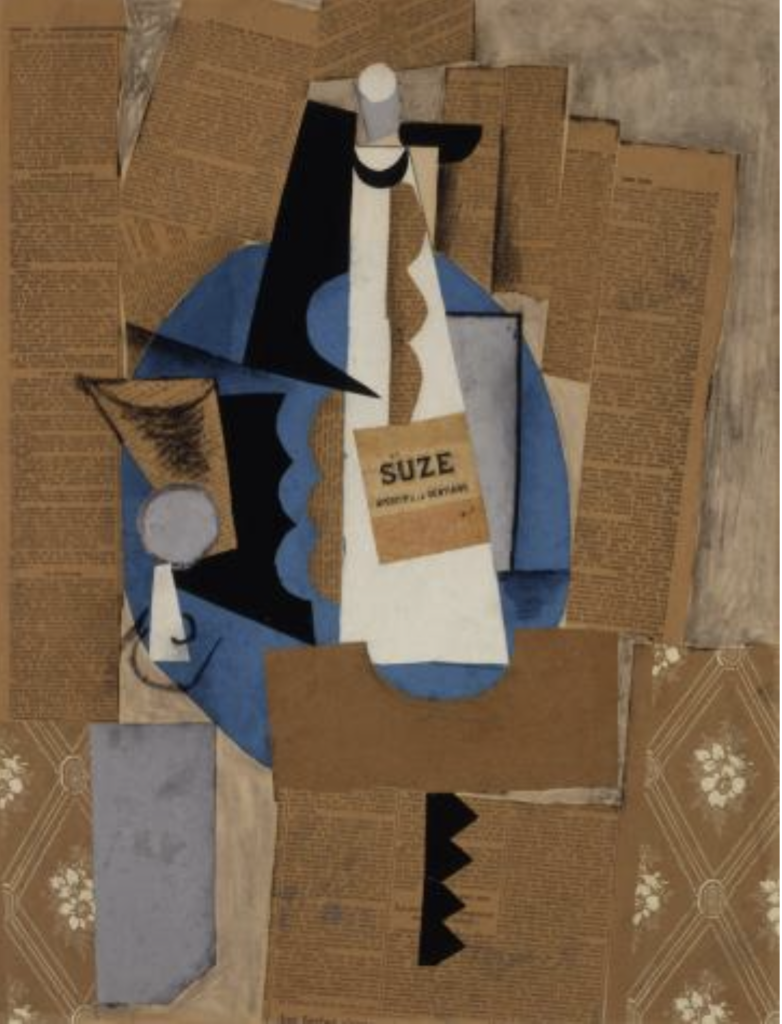
6.
The windiest militant trash
Important Persons shout
Is not so crude as our wish:
What mad Nijinsky wrote
About Diaghilev
Is true of the normal heart;
For the error bred in the bone
Of each woman and each man
Craves what it cannot have,
Not universal love
But to be loved alone.

7.
From the conservative dark
Into the ethical life
The dense commuters come,
Repeating their morning vow;
“I will be true to the wife,
I’ll concentrate more on my work,”
And helpless governors wake
To resume their compulsory game:
Who can release them now,
Who can reach the deaf,
Who can speak for the dumb?
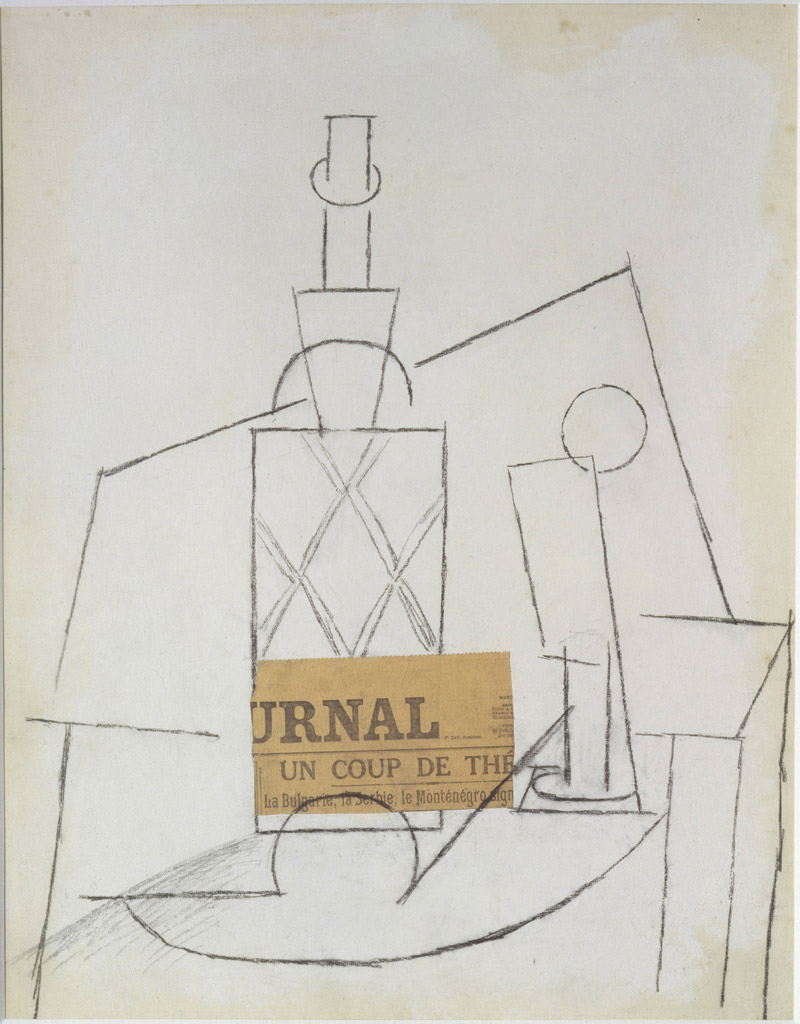
8.
All I have is a voice
To undo the folded lie,
The romantic lie in the brain
Of the sensual man-in-the-street
And the lie of Authority
Whose buildings grope the sky:
There is no such thing as the State
And no one exists alone;
Hunger allows no choice
To the citizen or the police;
We must love one another or die
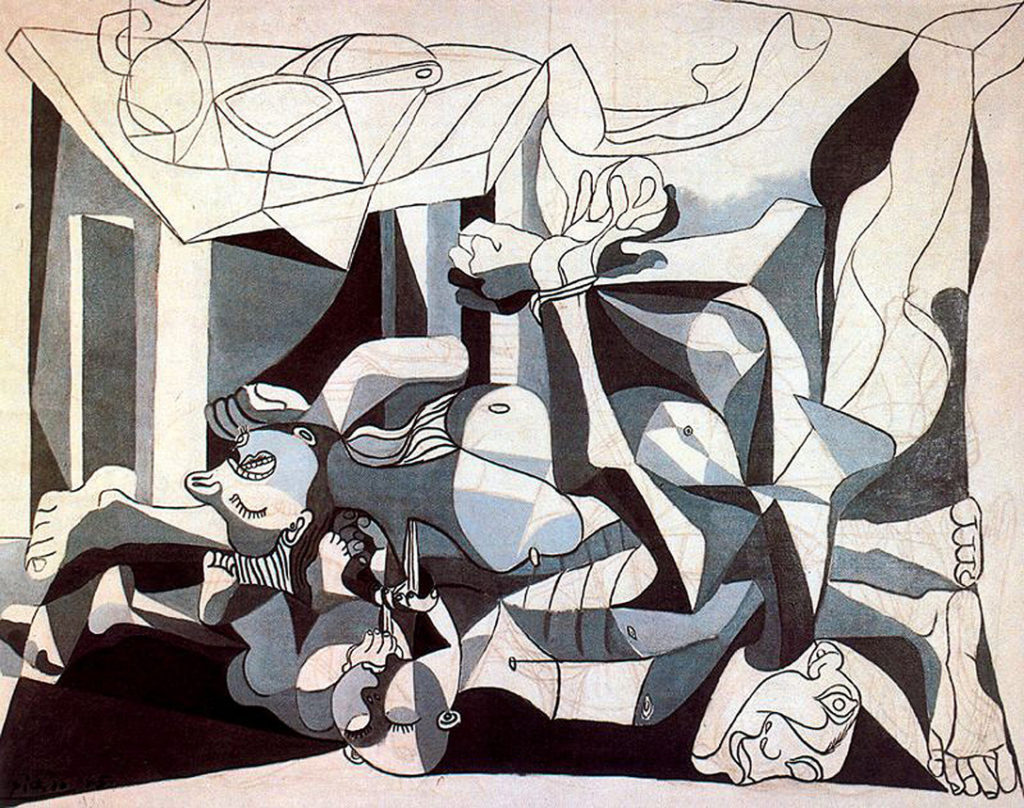
9.
Defenceless under the night
Our world in stupor lies;
Yet, dotted everywhere,
Ironic points of light
Flash out wherever the Just
Exchange their messages:
May I, composed like them
Of Eros and of dust,
Beleaguered by the same
Negation and despair,
Show an affirming flame.